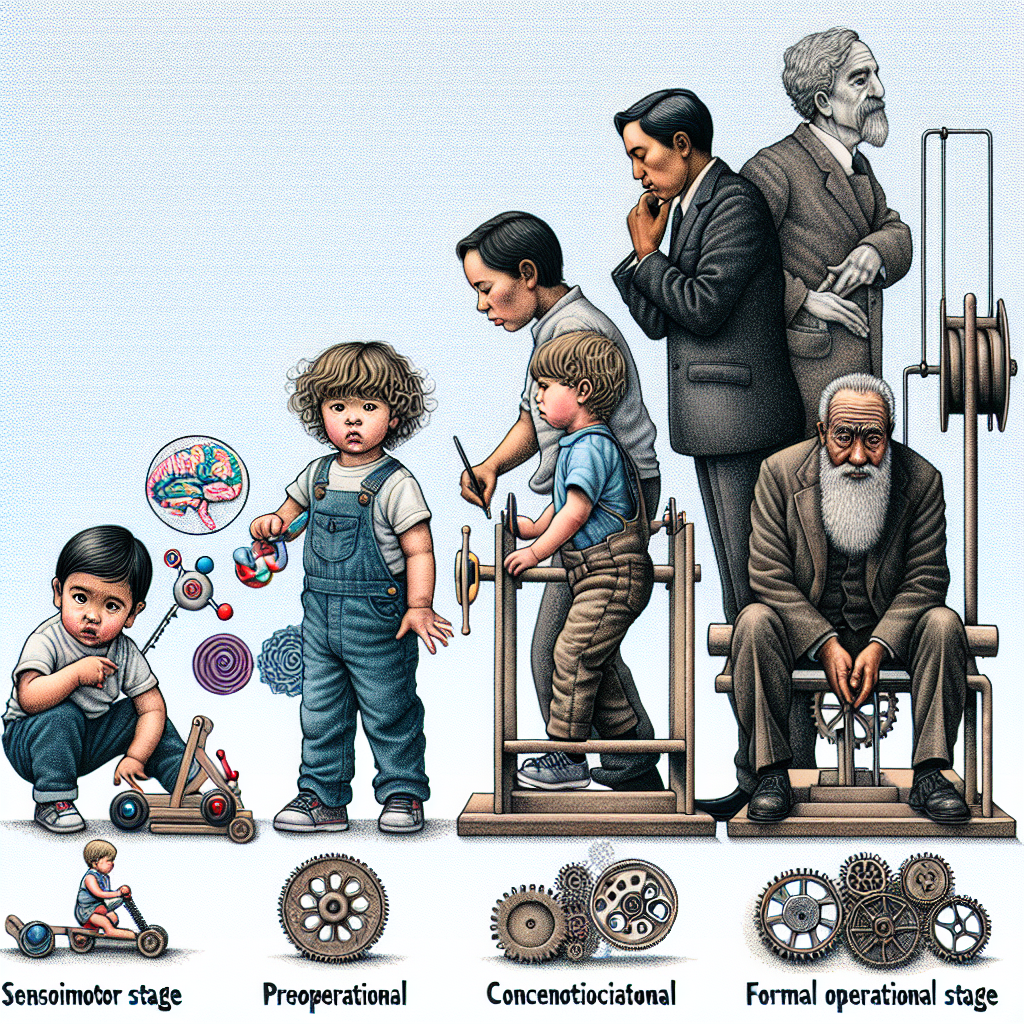
Introduction
Imagine nurturing a child’s mind from the moment they touch a soft blanket to the instant they ponder the mysteries of the universe. This transformative journey is beautifully captured in the developmental stages identified by Jean Piaget, a pioneer in developmental psychology. From Sensory Play to Abstract Thought: Exploring Piaget’s Developmental Stages is not just an academic inquiry; it’s a roadmap for parents, educators, and anyone invested in child development. Understanding these stages can empower us to enrich children’s learning experiences, laying a foundation for critical thinking and creativity.
Throughout this article, we will delve deep into Piaget’s theory, exploring each stage, the importance of sensory play, and the progression to abstract thought. Through case studies, practical applications, and actionable insights, we will illuminate the journey from the tangible to the conceptual, captivating the reader’s interest and providing valuable knowledge along the way.
Piaget’s Developmental Stages: An Overview
Jean Piaget introduced a four-stage theory of cognitive development, emphasizing how children actively construct their understanding of the world. These stages are:
- Sensorimotor Stage (0-2 years)
- Preoperational Stage (2-7 years)
- Concrete Operational Stage (7-11 years)
- Formal Operational Stage (11 years and up)
Understanding each of these stages within the context of From Sensory Play to Abstract Thought: Exploring Piaget’s Developmental Stages allows us to appreciate the intricacies of child development.
Sensorimotor Stage: Building Foundations Through Sensory Play
In the sensorimotor stage, infants engage with their environment predominantly through their senses. This is a critical period for developing motor skills, cognition, and emotional bonds. Sensory play is crucial at this stage as it enhances brain development.
Case Study: The Importance of Texture
In a nursery setting, an educator introduces various textured materials—soft, rough, smooth, and bumpy. As children explore these textures, they not only develop fine motor skills but also begin to associate these tactile experiences with emotions and concepts. This case exhibits how sensory play forms the groundwork for more complex cognitive functions, leading us naturally into the preoperational stage.
Preoperational Stage: The Dawn of Imagination
Following the sensorimotor stage, children enter the preoperational stage, where they begin to engage in symbolic play and learn to manipulate symbols. This stage is often characterized by egocentrism, where children struggle to view situations from perspectives other than their own.
At the Crossroads of Imagination and Logic
During this phase, children enrich their vocabulary and express themselves creatively. The concept of pretend play emerges here. From Sensory Play to Abstract Thought: Exploring Piaget’s Developmental Stages illustrates how children transition from sensory experiences to imaginative scenarios.
Case Study: The Power of Storytelling
A group of preschoolers engages in a story circle where they use puppets to act out their tales. This exercise showcases their ability to represent thoughts and feelings abstractly, further enhancing their social skills. It helps them understand narrative structure, setting the stage for future academic learning.
Concrete Operational Stage: Bridging the Real and the Abstract
As children step into the concrete operational stage, they begin to think logically about concrete events. They understand the concept of conservation—that quantity doesn’t change even when its shape does. They can also categorize objects and understand relationships between them.
Case Study: The Water Conservation Experiment
In a third-grade classroom, children are presented with two different-shaped containers filled with the same amount of water. When asked which has more water, the initial answers vary. However, through guided questioning and hands-on experimenting, all students arrive at the understanding that both containers hold the same volume.
This example underscores how critical thinking develops during this stage. From Sensory Play to Abstract Thought: Exploring Piaget’s Developmental Stages emphasizes how physical interactions with materials enhance cognitive skills and prepare children for abstract reasoning.
Formal Operational Stage: The Apex of Abstract Thought
Entering the formal operational stage marks a significant shift: children can now think abstractly, reason logically, and consider hypothetical situations.
Thinking beyond the Now
At this stage, adolescents can formulate hypotheses and solve complex problems. They understand abstract concepts like justice, love, and freedom, which often leads to philosophical discussions.
Case Study: A Debate on Ethics
In a high school ethics class, students are required to debate controversial topics that require abstract reasoning and critical analysis. This classroom environment cultivates logical thinking and encourages students to explore moral dilemmas. Here, From Sensory Play to Abstract Thought: Exploring Piaget’s Developmental Stages showcases how essential it is to engage with complex ideas during adolescence.
The Role of Adults in Facilitating Development
Understanding Piaget’s stages isn’t just for educators; parents and caregivers also play an integral role. Actively participating in children’s learning can significantly enhance their development.
Practical Strategies for Each Stage
For the Sensorimotor Stage: Encourage exploration. Provide various sensory materials—water, sand, play dough—to stimulate tactile learning.
For the Preoperational Stage: Foster imaginative play. Role-playing, storytelling, and arts and crafts can help children express themselves and think creatively.
For the Concrete Operational Stage: Use hands-on activities. Encourage children to solve problems through tangible experiences, like cooking or building.
- For the Formal Operational Stage: Promote discussions around hypothetical situations. Engage teens in debates and encourage them to explore various perspectives.
Conclusion: Empowering Development Through Understanding
From Sensory Play to Abstract Thought: Exploring Piaget’s Developmental Stages has illuminated the rich tapestry of childhood cognitive development. Each stage presents unique opportunities and challenges, enabling children to grow, learn, and thrive.
By understanding and nurturing these stages, we arm ourselves with the tools necessary to foster creative, critical thinkers. As we inspire the next generation, let us remember that the journey from the simple to the profound is not just developmental—it’s transformative.
FAQs
At what age does each of Piaget’s stages occur?
- The sensorimotor stage occurs from birth to 2 years, preoperational from 2 to 7 years, concrete operational from 7 to 11 years, and formal operational from 11 years and up.
What role does sensory play have in cognitive development?
- Sensory play stimulates brain development and helps children learn to process and understand different sensations, forming the basis for more complex thought processes later.
How can I support my child’s development according to Piaget’s stages?
- Tailor activities to meet your child’s developmental stage, ensuring you provide age-appropriate challenges and materials.
Is Piaget’s theory still relevant today?
- Yes, while newer theories have emerged, Piaget’s insights into child development remain foundational and are widely utilized in educational practices.
- How can I help my child transition from concrete to abstract thinking?
- Engage them in discussions that allow for the exploration of hypothetical scenarios and abstract concepts, encouraging them to think critically and independently.
This comprehensive exploration reinforces the importance of understanding child development through the lens of Piaget’s stages. By integrating these insights into everyday learning, we can create enriching environments that foster curiosity and growth.














